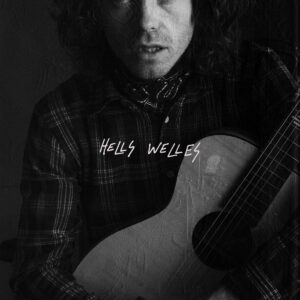War isn't murder, good men don't die
Children don't starve and all the women survive
"War isn't murder, " that's what they say
When you're fighting the Devil, murder's okay
War isn't murder, they're called casualties
There ain't a veteran with a good night's sleep
Let's talk about dead people
I mean a-dead people
The dead don't feel honor
They don't feel that brave
They don't feel avenged
They're lucky if they got graves
Call your dead mother, ask her when she died
It's a deathly silence on the other line
The dead don't talk, but the children don't forget
So in 20 short years, you could live to regret that
War isn't murder, there's money at stake
Girl, even Kushner agrees it's good real estate
War isn't murder, ask Netanyahu
He's got a song for that and a bomb for you
War isn't murder, it's an old desert faith
It's a nation-state sanctioned, righteous hate
Let's talk about dead people
I mean a-dead people
War isn't murder, it's the vengeance of God
If you can't see the bodies, they don't bloat when they rot
And the flies don't swarm, and the children don't cry
If war isn't murder, good men don't die
So in a short 20 years, when you vacation the Strip
Don't think about the dead and have a nice trip
War isn't murder, we should all give thanks
I saw it all in a movie, give it up for Tom Hanks
War isn't murder, they don't ship out the poor
And the bullets they fire aren't part of the cure
War isn't murder, land is a right
But the banks called dibs, it's something you can't fight
Let's talk about dead people
I mean a-dead people
The dead don't feel honor
They don't feel that brave
They don't feel avenged
They're lucky if they got graves
War isn't murder, ain't a river of blood
Stretching all-through time and raining down in a flood
It's a dark sacrifice, made on your behalf
So get down on your knees and thank the sweet Lord that
War isn't murder
 Jesse Welles
Jesse Welles 



